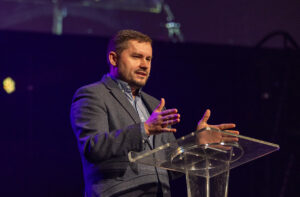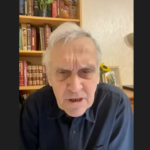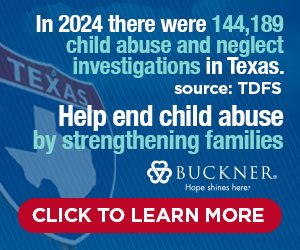BELTON—When Russia invaded Ukraine in late February last year, Ivan Rusyn helped rush his seminary faculty, staff and students away from the artillery and missile strikes while he and other key administrators bunkered down a mere 1,000 feet from the Russian front lines to assist those who couldn’t leave.
From that first day of the war, Rusyn, president and professor of missions at the Ukrainian Evangelical Theological Seminary, and his team have been actively involved in a relief ministry, providing care to those suffering from the atrocities of war.

During a recent chapel service at the University of Mary Hardin-Baylor, Rusyn told students he stayed behind to help, placing himself in grave danger, because “the church cannot serve people without being among the people. We have to walk the same path.”
To help students understand his decision, he challenged them to look at the parable of the Good Samaritan through “Ukrainian lenses amid a full-scale war.”
“A Samaritan was ready to help when it was dangerous,” he said. “He gave the most important thing to the one who was wounded—time and resources. He demonstrated compassion.”
After spending more than 600 consecutive days serving in the war-torn country, Rusyn looks back, knowing Jesus challenged him to stay.
“Our first reaction is to run away from the suffering—from the places where danger is. But Jesus is the incarnation, teaching me to go to the epicenter of the suffering,” said Rusyn, who is also an ordained minister of the Ukrainian Evangelical Church and co-pastor of Christ Temple Church in Kyiv.
Just as he can see Jesus in the beaten man in the parable, Rusyn said he also sees Jesus in the traumatized people of Ukraine.
“When I see that innocent people, children, women and people with disabilities are suffering, I know that Jesus suffers as well because he is in them. We are created in his image.”
Sign up for our weekly edition and get all our headlines in your inbox on Thursdays
Compassion means to ‘suffer together’
He said he also sees Jesus in those helping, just as the Samaritan helped.
“As I witnessed people being killed—soldiers and civilians—I realized I didn’t see Jesus as a supernatural figure, but I’m quite sure I hear his voice when an old lady receiving some help says, ‘Thank you.’”
Rusyn went on to say that in stressful situations, the best way to serve God is by caring about our neighbors, which is a “great confirmation that we love the Lord.”
“This parable teaches me that you don’t need to be a great man or have a great status in church or society to help people,” he said. “Little people in this story play a significant role.”
The bullet holes left in his campus walls are a constant reminder of why he remains to help.
“Compassion, for me, means to suffer together—to suffer in the same way as others have and to have the same scars as society has,” he said.
“At the beginning of the war, I was a little bit afraid that people would ask me difficult questions like, “Why is this happening?” But, I learned they are not looking for answers. They are looking for somebody who can be with them, who can demonstrate sympathy and compassion.”
He encouraged the students to continue to pray even when the war ends because more than seven million “children of war” will grow up with deep-rooted trauma that will follow them their entire lives.
“Be the voice of Ukraine in your society. Let your government know that you care,” he added. “And be the people who are committed to the ministry of transformation.
“The world needs competent and faithful people who, by the profession of ministry and integrity, will transform the world.”
















We seek to connect God’s story and God’s people around the world. To learn more about God’s story, click here.
Send comments and feedback to Eric Black, our editor. For comments to be published, please specify “letter to the editor.” Maximum length for publication is 300 words.